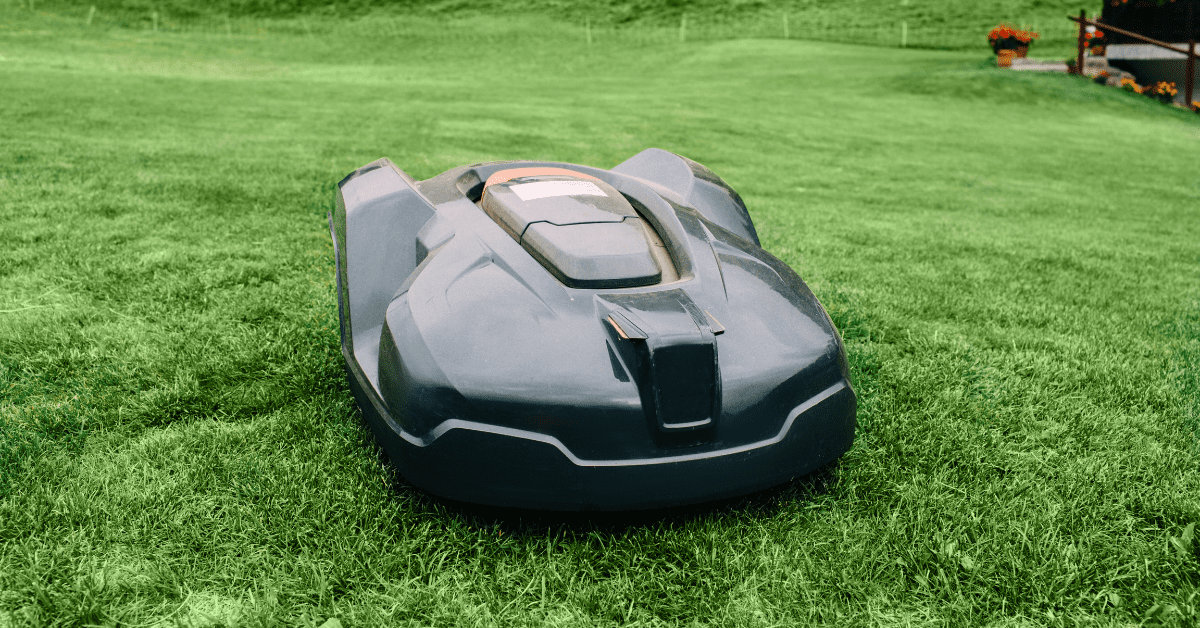
Guest Post
If you own or manage a lawn care business, then you’re probably already well aware of the current labor market and the difficult conditions it’s causing.
Almost every industry, lawn care included, is dealing with labor shortages and a tight labor market. This can make it difficult to scale your business effectively. It also may make it hard to service your current clientele if you’re struggling to find qualified workers.
Many industries are turning to automation to help them deal with labor shortages and expenses. Lawn care is no different and one of the ways this is being done is through the use of robot mowers.
Robot mowers can work mostly unattended and can be deployed to several properties at once. This can be an appealing scenario for lawn care businesses looking to scale up.
Below, we’ll explain exactly how you can incorporate robot mowers into your lawn care business to save money and scale your business.
Benefits Of Using Robot Mowers
For a lawn care business, finding ways to integrate robot mowers offers many benefits that can be realized almost immediately after deployment.
Better Employee Utilization
At first, it may seem that robot mowers will be used to replace employees, but that’s actually not the best use of this technology. Instead, using robot mowers allows you to allocate your staff to more important and higher-margin tasks that require more skill.
This means your current employees are busy working on high-margin jobs instead of just operating a mower on one property at a time.
This opens up many opportunities to use your existing employees to do more, including bidding and securing new clients instead of being burdened with repetitive tasks that occupy them for hours per day.
Efficiency
Industrial robot mowers can be deployed and left behind as the employee managing them moves to another property to set up other mowers or do other tasks. No employee has to be paid to be on site while the mower is operating in many cases.
This is far more efficient and allows you to earn money on several lawns simultaneously while only deploying a single employee.
Low Maintenance
Most robot mowers are all-electric and they’ve advanced to the point where they require little maintenance. What little maintenance they do require is far less than a typical commercial zero-turn mower that you may currently be deploying to the job site.
Tips To Integrate Robot Mowers into Your Current Lawn Care Business
Making the transition to robot mowers may seem difficult since most lawn care businesses are not familiar with the technology. But with these tips, you can find your niche in almost any local market.
Focus On Commercial Properties
Commercial properties or large residential estates are generally the best fit for the current generation of robot mowers. The mowers can be dropped off at these locations and left unattended more easily than smaller home properties.
Because robot mowers scale so well, you can easily add commercial clients without having to worry about hiring more employees. Adding robot mowers is relatively easy, so there is no limit to how many new clients you can add.
Another option that is sometimes used is to lease one or more robot mowers to the property owner. The mower essentially stays on the property, but your crew visits periodically to perform maintenance and clean up or maintain other areas of the property.
In the past, this leasing model was the only way to integrate robot mowers into a lawn care business. The reason was that most mowers essentially cut full-time in order to service the entire turf area.
But newer commercial robot mowers can both mow faster and mow intelligently with other mowers to tackle even large properties in less than a day. As mowers advance and get even faster and less expensive, it’s likely this will be the common method for cutting large commercial and public areas.
Market The Fact That You Use Zero-Emission Robot Mowers
Don’t shy away from the fact that you are using zero-emission all-electric robot mowers. Many commercial or corporate clients will appreciate this fact. You may even be able to charge a premium because of the eco-friendly nature of the technology. Some commercial clients or local government clients may also have requirements to meet certain ecologically-friendly goals.
Marketing the eco-friendly aspects of robot mowers also gives you a way to differentiate yourself from competitors when bidding on jobs.
Take Advantage Of Vendor Training
The transition to robot mowers may be difficult, but most commercial robot mower vendors will be happy to work with you if you want to integrate their products into your lawn care business.
Make sure to ask about training for you or your employees who will be dealing with the mowers. The vendor or dealer should be able to help you learn how to set up the mowers on different types of lawns as well as troubleshoot any issues that can come up with the mower.
They can likely also offer you tips based on other lawn care businesses they’ve worked with to help you avoid any mistakes or pitfalls along the way.
Overall, never be shy to ask about training and ask for it to be provided for free when you buy your commercial robot mower.
Hybrid Approach For Residential Clients
Another option is to use a model similar to the commercial lease described earlier, but adapt it for homeowners and their properties.
With this method, you offer a smaller and lower-cost robot mower to the homeowner via a lease. Your company then does all of the installation and setup to get the robot mower operational. However, you also attach a traditional lawn care package where you have an employee show up and edge, trim bushes, or perform other services.
You may think that the homeowner will simply decide to install a robot mower themselves. Some may do this, but plenty of homeowners want to pay for their lawn service due to convenience, even for a robot mower.
You can sell the idea of a robot mower to residential clients by highlighting these benefits.
- Quiet operation
- Healthier grass
- Less water can be used
- Eco-friendly/zero emissions
- Part of a home automation solution
The benefit for you as the lawn care business isn’t necessarily that you can earn more from a robot mower lease than a traditional mowing contract. The bigger benefit is that you can scale this service very easily.
Once installed, a single employee can make the rounds and tend to the other services needed at many different job sites. Also, you don’t have to buy the robot mower until you have a client that signs a lease. So there is less upfront investment needed with this hybrid method compared to some other methods to expand your business.
Some franchises are already providing this hybrid robot mower leasing lawn care service around the country. However, as an independent lawn care business, you can easily add it to your list of services to start securing market share now.
Of all the ways to integrate robot mowers into a lawn care business, this one may be the easiest and least expensive. It’s also the one that will probably have the least competition in your market, at least for now.
Additional Tips On Robot Mowers and Automation
Wherever we look these days, we say automation is on the horizon. From self-service kiosks to AI assistants, businesses are implementing automation to help them scale better, provide better service, and keep costs in check.
Lawn care is no different, and as robot mowers advance even further, their use will likely be commonplace on properties of all types.
It’s wise to at least look into this emerging technology and decide if it’s the right fit for your business and your goals for future expansion.


